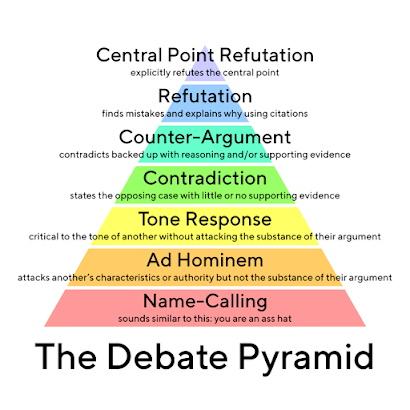
Charlottesville, and all of the other hot buttons about white supremacy, is about the symbolism, not about statues and flags.
It is all about the symbolism, and this means that it is not a stark "one or the other" of whether we can or cannot have statues and flags commemorating the confederacy.
It is highly complex and nuanced, and it is all about injustice and discrimination, committed to preserve social and political power.
Flying the confederate flag over state capitol buildings (and other places) has a symbolism of glorifying and endorsing the confederate cause of continuing slavery, which was highly unjust. This is true,
even when that glorification is not the intent.
Does that mean we forget what the flag looked like? Of course not. But we have to understand the complexities that go with the pro-slavery cause it represented.
We remember Robert E. Lee as an effective general. There are positive and negative things about him. In giving loyalty to the state of Virginia over his vows to the national government, he exhibited a form of patriotism, but also supported the unjust political and social regime that was grounded in slavery. Is it appropriate to honor him on public property, without recognition of this complexity, and things that were NOT honorable about him?
I know people in the South today who feel that states should have the right to nullify all federal laws and regulations they do not like. For them, the confederacy is an uncompleted project that they would be happy to get back to, not in terms of another war, and not to return slavery, but in terms of transforming the federal government to eliminate the ability to impose rules on states and local government. Remember that the emancipation was an imposed rule that the local whites mostly did not like.
The current national debate is about a movement that strategically uses intimidation, fear, and also politics to repress people who are not like themselves. It is deeply motivated by fear of becoming a minority and having to abide by the majority rule of others, not like themselves. There is nothing admirable about this movement.
But the debate also resides in today's hyper-sophisticated techniques of persuasion and brand marketing. The "brand" is what our target audience thinks about our company, product, or cause, based on all of the messages they have received about us.
So what is the brand of white supremacy? What do they promise followers? How do they "tell their story"?
Their promise is to preserve white privilege. And they personalize it. All of these other non-white groups are harming you and you will be better off without them, they tell followers.
To a huge majority of the people, this brand is unethical, unjust, and confederate flags and statues symbolize this injustice. But the white supremacy brand appeals powerfully to a certain small minority, based on their backgrounds and world-views. To them, the symbolism of removing flags and statues is the growing threat of losing their power and provilege.
Counter-protests may change laws and official policies, but they are not likely to change the minds of those who have bought in to the white supremacist cause. Removing statues and flags that commemorate and glorify the unjust confederate cause also will not change their minds, and in fact will like make these guys even madder.
So what do we do about the statues and flags?
I think that this mission of remembering the complexities and nuances of history, particularly the negative parts of our history, is the role for museums, not for public property displays that lack explanation and context. So, move these things to museums, or put companion interpretive displays in the parks, or maybe even companion statues that tell the other side of the story.
Do a better job of teaching the underlying pro-slavery social and economic dynamics of 19th century American slavery in our history classes.
Our society has long-neglected addressing the underlying white supremacy driving many political agendas. Just like a politician works to define the "brand" of the opposing candidate, the overwhelming majority needs to continually define the negatives of the brand of white supremacy.
 Update: Although this post was written a while back, people are still finding it and reading it. I have updated it here and there to reflect the post-Trump realities.
Update: Although this post was written a while back, people are still finding it and reading it. I have updated it here and there to reflect the post-Trump realities.
















